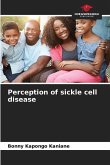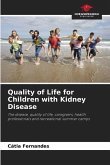Sickle cell disease is a genetic disorder characterized by a genetically determined alteration in hemoglobin production that occurs in the hemoglobin (Hb) molecule, where abnormal Hb S is produced instead of normal Hb A. Clinical manifestations include painful crises, acute chest syndrome, stroke, splenic changes, aplastic crisis, leg ulcers, osteoarticular, hepatobiliary, and ocular manifestations, renal syndrome, cardiovascular complications, and infections. In Brazil, it is considered a public health problem, as it affects a significant portion of the Brazilian population of African descent. Advances in the treatment of the disease and the consequent improvement in patient survival are intrinsically linked to how the family is welcomed and guided from the moment of diagnosis. Given the above, the study aimed to describe how care for children hospitalized for sickle cell disease is provided by family members and to understand how nursing contributes to the promotion of care forchildren hospitalized for sickle cell disease from the perspective of family members.
Bitte wählen Sie Ihr Anliegen aus.
Rechnungen
Retourenschein anfordern
Bestellstatus
Storno








